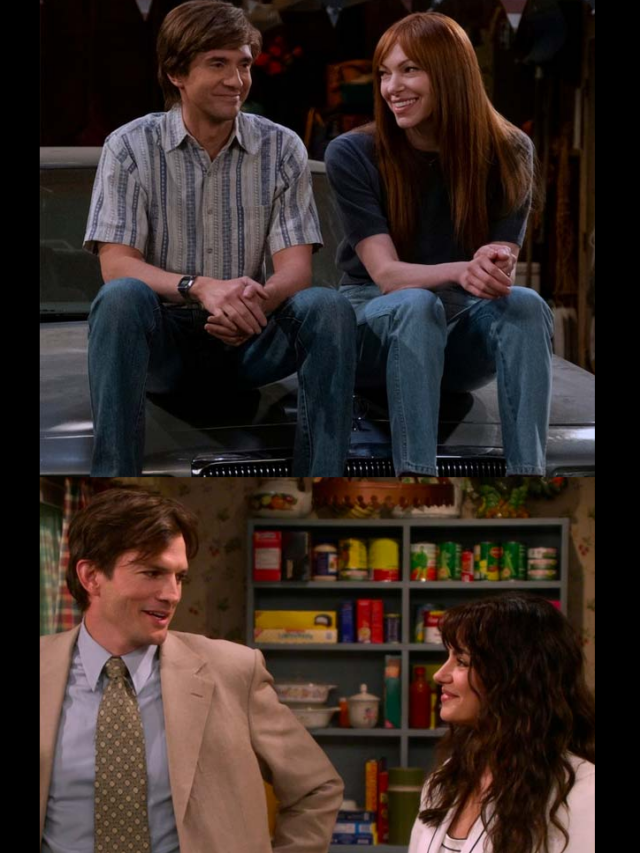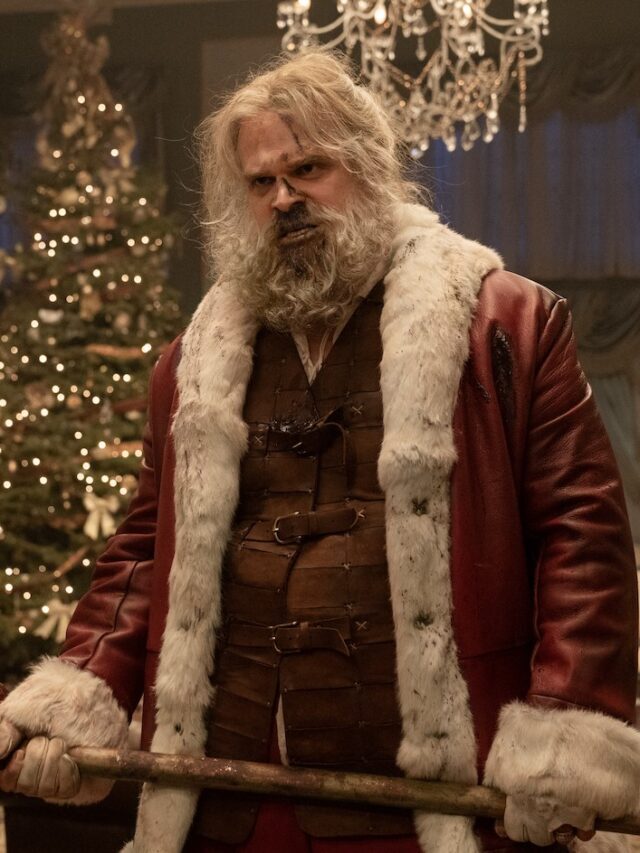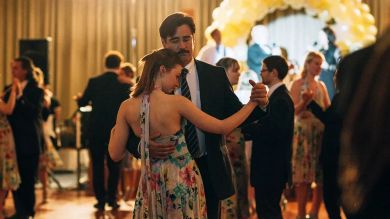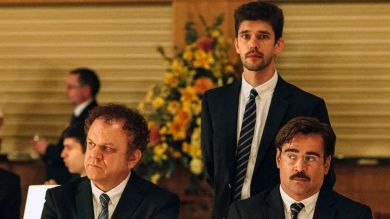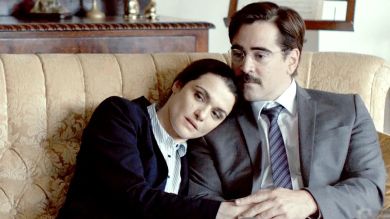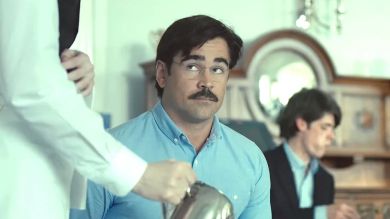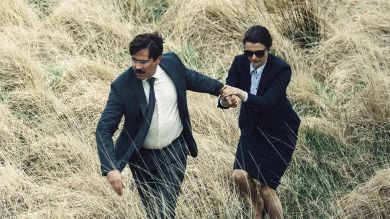“The Lobster,” like all of Yorgos Lanthimos’ movies, utterly turned me off when I first watched it. He is unquestionably one of the most innovative filmmakers working today, but my more upbeat approach collided with his pessimistic picture of humanity. After 21 years, when I found myself single once more, the movie made much more sense. I believe that because I was in a committed relationship, I was safely shielded from the pitfalls of dating and the social pressure to find a partner. Everyone avoids being the eccentric cat person, right?
I last actively looked for a relationship when the Twin Towers were still up, so I’m a long way from wanting to date again. I had to use Tinder to see what the hoopla was about despite the forces that frequently portray single people as weirdos or loners. It really is as awful as I had imagined – evaluating people by their appearance and merely giving their profile a cursory check does little to offset how incredibly superficial it all is. Oh, so Daisy likes movies and we are a perfect match? It might be a match made in hell if she turns out to be a Marvel fanatic compared to my love of cult oddities and folk horror.
Three years after Tinder’s debut, Lanthimos released “The Lobster,” a film that criticizes both the blatant superficiality of dating as well as the societal norms that lead us to believe we must be in a relationship in order to be normal. Even while I still dislike the film, I can now more clearly understand what it is trying to express. It’s time to explain that vague conclusion.
David and the Heartless Woman
As the main character in “The Lobster,” David’s choice to try and find love with the Heartless Woman comes out as a touch unsettling. What makes him pick her? It might be at least in part David’s superficiality. After all, Nosebleed Woman and her Best Friend, the two hotel guests who are the newest and most conventionally attractive, are no longer in the picture. Even though Biscuit Woman would undoubtedly be a better match for him than Heartless Woman, he is turned off by her dejected advances.
But the main reason is probably that he finds it simpler to pretend not to care about someone after a difficult breakup than it is to feel genuine affection for them. much more so in the hotel’s make-or-break scenario.
Although it doesn’t seem difficult to simulate a lack of feeling in this culture, David initially succeeds in pulling off the charade. Everyone speaks monotonously and hardly ever shows even the tiniest trace of a grin. By having absolutely no sympathy for Biscuit Woman after she follows through on her promise to commit herself, he passes Heartless Woman’s first two tests. The Heartless Woman, his potential spouse, then plays the victim while pretending to choke on an olive in the jacuzzi, forcing him to maintain an indifferent gaze.
They receive compensation for matching with a double room. They can spend the rest of their trial time on a private yacht if they remain together for two weeks. But David still faces the Heartless Woman’s suspicions that he is staging cruelty, which is a concern. She cruelly kills his brother (the dog) to put him to the test.
Finding love in The Lobster
People in “The Lobster’s” bizarre universe are so concentrated on insignificant features that they are unable to see anything else about a person. This absurdist extreme reduces the (Tinder) profile component of dating. The rigorous compartmentalization of this society leaves no room for irrationality. David is questioned about his sexual orientation when he checks into the hotel. Though he favors women, he muses that he once had a gay encounter. Could he then identify as bisexual? No, he has to choose between being straight or gay.
People are compelled to act in extreme ways by this system. As her allowed time runs out, Biscuit Woman (Ashley Jensen), a middle-aged woman who like buttery cookies, begs David for sexual favors. She claims that she would rather commit herself than turn into an animal. John painstakingly pretends to have nosebleeds in order to meet Nosebleed Woman. She’s content to accept her fate as a pony with a blonde mane, but her best friend (Emma O’Shea), who is known for having wonderful blonde hair, is either too proud or disillusioned with the whole affair to partake.
David uses John’s deceit as motivation to make up a trait of his own as his time and alternatives are running out. He focuses on Heartless Woman (Angeliki Papoulia), one of the hotel’s most dreadful loner hunters due to her callousness.
Loner life in the forest
The Heartless Woman tries to denounce him after he kills David’s brother, but he uses the Maid to sedate her and drag her into the Transformation Room as payback, blowing the lid off his pretense. He is left with little choice but to flee into the woods, where he meets a group of militant Loners led by an aggressive Leader (Léa Seydoux). Later on, we discover that the Maid assisted David because she is a member of the Resistance as well.
Even though David managed to get away from the hotel and his likely destiny as a lobster, he soon discovers that life with the Loners isn’t much better. He can certainly benefit from the independence that comes with being single, including the ability to masturbate whenever the mood strikes, but the Leader, an extremist, has turned the Loner concept into a type of zealotry. Kissing or sexual contact is prohibited for loners, and it is penalized by mutilation. The Loners are given electronic music to listen to on personal devices while they dance alone in contrast to the hotel’s awkward dances.
Each member of the community digs their own grave since the Loner Leader runs it like a guerilla unit and no one else is going to do it for them. It’s a sad life, but despite the severe limitations, David finds himself drawn to Rachel Weisz, a lady who also has limited sight. Her eyesight, more than anything else, is what convinces him to commit to her since he is still trying to fit in with society’s demand that we find arbitrary things in common. They begin to fall in love and engage in an illicit sexual relationship at tremendous danger. When traveling with the Leader to the City, their only opportunity to act like a “regular” pair is when they must display affection in order to keep their cover.
So what happens in The Lobster again?
We are introduced to David (Colin Farrell) in “The Lobster” after a shocking opening sequence in which a lady shoots a donkey in a field. His wife has left him for another guy. He is whisked away to a grand old hotel where he and the other singleton guests have 45 days to fall in love before the dreadful news ever has a chance to sink in. They will be transformed into the animal of their choice if they don’t. After that, they’ll either be released back into the wild or adopted as pets, like David’s brother, who is now his devoted dog. David chooses a lobster when the hotel manager (Olivia Colman) invites him to select an animal.
The hotel’s way of life is very structured. To help the couples stay focused on their objective, the singles are seated in the dining area facing them. They are required to watch propaganda talks about the benefits of being in a relationship. They must also awkwardly mingle during ballroom dances while dressed in the same dull formal attire that is provided for everyone. The male visitors must receive sexual stimulation from the Maid (Ariane Labed), who is required to forbid masturbation and punish offenders severely. For individuals who are running out of time to find a match, going on hunts to capture runaway Loners in a neighboring forest will grant them bonus days.
David makes friends with John (Ben Whishaw), a man with a limp, and Robert (John C. Reilly), a man with a lisp, while he is staying at the motel. These specifics are crucial in the “The Lobster” universe since it encourages singles to define themselves by one quality and look for a potential mate in a person with complementary qualities. Finding someone who has vision impairments equivalent to David’s short eyesight is necessary. But can he accomplish that before becoming a crustacean?
The Leader’s malice
Instead of making the rebels the heroes of “The Lobster,” as might have been the case with a more forgiving writer-director, Yorgos Lanthimos portrays them as extremists who are hostile to the hotel and the society it supports. Beyond a basic dislike of the system, the Leader is motivated by a true loathing of couples. She wants to destroy the idea of a successful monogamous relationship as a social construct, not just tear it down.
This is demonstrated when, when leading a raid on the hotel, she crashes into the hotel manager’s room one night while she and her husband are fast sleeping. Despite his initial declaration that he loves her with “all his heart,” he swiftly changes his mind when given the option to kill his wife rather than perish. He tries to shoot her without hesitation, but the gun isn’t loaded. Despite surviving, the hotel manager learns a painful lesson. It’s difficult to envision how a relationship could endure such a discovery, even while we don’t see the consequences. The Leader’s involvement does little to undermine society’s support for the couples program, though. Later, it is shown that the hotel bus is still transporting Loners to treatment.
The Leader’s treatment of spouses is motivated by genuine spite. When the Short Sighted Woman’s diary is found just before their attempt to flee to the City, David and the latter are caught up in it. They are punished by the Leader by having a doctor make the wife blind. Although David continues to spend time with her, his heart doesn’t seem to be in it. It’s a heartless behavior. David determines that they should still flee, despite this.
The Lobster ending explained
Returning to the location where she forced him to dig his ultimate resting place, David subdues the Leader and ties her up in her grave as food for wild dogs. He enters the City with the Short Sighted Woman, and they enter a restaurant. In order to blind himself, David goes to the restroom after asking the waiter for a steak knife.
This draws attention to the dystopian men’s masochistic nature. Instead of looking for a relationship that goes beyond superficial physical characteristics, they would rather hurt themselves or engage in immoral behavior to meet a companion. Instead of actually removing his eyes, David would be better served by pretending to be blind, just as he did when he pretended to be uncaring. David’s literal shortsightedness is a reflection of his incapacity to recognize any superior alternatives.
The Short Sighted Woman waits anxiously at the table for David to come back as “The Lobster” comes to an inconclusive conclusion. There are no sounds coming from the bathroom; is David still ruminating on it or has he fled, leaving her there? As the final credits for the worst dating movie ever roll, Yorgos Lanthimos leaves the audience to figure out the solution. …or does he?
David emphasizes his love of the sea earlier in the movie while explaining why he chose a lobster. Wind and waves are audible at the end of the credits. Is this a suggestion that David, like the spouse of the hotel manager, has given up trying to make a sacrifice for the alleged love of his life? Because some lobsters can live for more than a century. Without the pain of poking your beady little eyes out, that’s plenty of time to locate a partner.
Our Team DCS includes 5 different writers proficient in English and research based Content Writing. We allow them and encourage them to follow the Entertainment news all day long. Our posts, listicles and even the exclusives are a result of their hard work.

